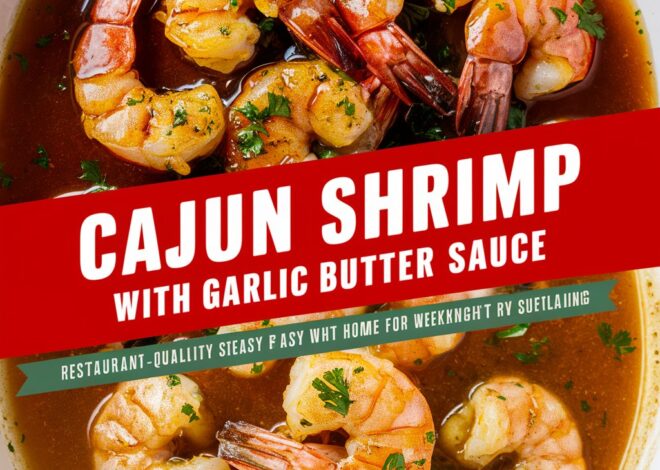
What Does “Cooked” Mean in Slang? A Deep Dive into Its Evolving Meaning
Slang constantly evolves, with words taking on new meanings depending on culture, region, and generation. One such term that has gained traction, especially among Gen Z, is “cooked.” While its traditional meaning relates to food preparation, in slang, “cooked” typically describes someone who is extremely tired, overwhelmed, or under the influence of substances.
However, context matters. In some cases, people use “cooked” to describe something impressive or completely messed up. Despite these variations, the term often carries a negative connotation, especially when referring to exhaustion or intoxication. This dual nature has sparked debate over whether “cooked” should be used lightly, particularly in conversations about substance use.
So, what’s the full picture behind this slang term? Let’s break it down.
Key Points
- Research suggests: “cooked” in slang primarily means being extremely tired, overwhelmed, or under the influence, with usage varying by context.
- It seems likely that “cooked” can also describe something as impressive or messed up, depending on the speaker’s intent, though this is less common.
- The evidence leans toward “cooked” being a negative term, often used by Gen Z to express exhaustion, with some controversy around its use in discussing intoxication.
“Cooked” Slang Meaning
In slang, “cooked” has several meanings, primarily:
- Exhausted or Overwhelmed: This is the most common usage, describing someone who is extremely tired or has reached their physical or mental limit, like “I’m cooked after that long day.”
- Under the Influence: It can also mean being under the influence of drugs or alcohol, to the point of not functioning effectively, such as “He was cooked after drinking too much.”
- In Trouble or Messed Up: Less commonly, it can mean something is in a bad state or someone is in trouble, like “I’m cooked if I don’t finish this project.”
The meaning depends on context, and it’s often used colloquially, making it ambiguous without additional clues.
“Cooked” Literal Meaning
The literal meaning of “cooked” is the past tense of the verb “cook,” referring to food that has been prepared by heating, such as boiling, baking, frying, or steaming.
“Cooked” Cultural Significance
“Cooked” is popular among Gen Z, used in casual conversations and on platforms like TikTok and X to express extreme states, such as exhaustion or being high. It likely originated from the idea of being “overcooked,” paralleling feeling overworked or overindulged, reflecting digital culture’s dynamic language evolution.
Comprehensive Analysis of “Cooked” in Slang
This note provides a detailed exploration of the slang term “cooked,” its literal and cultural meanings, and alternatives across different contexts, expanding on the key points for a thorough understanding. The analysis is informed by recent online sources, reflecting usage as of March 2025.
Literal Meaning of “Cooked”
In its literal sense, “cooked” is the past tense of the verb “cook,” which refers to food that has been prepared by heating, typically by boiling, baking, frying, or steaming. This usage is straightforward and contrasts with its slang interpretations, highlighting the evolution of language in digital spaces.
The Slang Meaning of “Cooked”
In slang, “cooked” can have several meanings depending on the context, with the following being the most prominent:
- Exhausted or Overwhelmed: This is the most common usage, describing someone who is extremely tired or has reached their physical or mental limit. For example, “After that long meeting, I am completely cooked,”.
This meaning likely emerged from the phrase “cooked to a crisp,” implying being drained beyond limits, gaining prominence by the late 2010s.
- Under the Influence: “Cooked” can also mean being under the influence of drugs or alcohol, to the point where one is not functioning effectively. For instance, “He had too much to drink last night—he was cooked,” as mentioned in.
This usage harks back to the 1970s drug culture, where “cooked” meant being high or altered.
- In Trouble or Messed Up: Less commonly, “cooked” can mean something is in a bad state or someone is in trouble. For example, “Oh, I’m cooked if I don’t finish this project,” as seen in various online discussions. This usage is more situational and depends on the speaker’s intent.
Additionally, some sources suggest “cooked” can be used to describe something as impressive or not, depending on context. For instance, “a protean term that is used to convey an evaluative judgment of a thing or a state of affairs. Something that is ‘cooked’ may be very good, very bad, or somewhere in between.” However, this usage is less documented and often confused with the phrase “let them cook,” which means letting someone perform well without interference. The meaning of “cooked” can be ambiguous without context, reflecting its colloquial and dynamic nature in digital communication.
Cultural Significance of “Cooked”
“Cooked” holds cultural significance within Gen Z and Alpha communities, reflecting their experiences and expressions in digital culture. Key aspects include:
- Origin and Evolution: The term likely originated from the idea of something being “overcooked,” meaning it’s beyond its optimal state, paralleling feeling overworked or overindulged. This metaphorical use began in the late 2010s, particularly within gaming and social media.
- Digital Usage: It’s prevalent on platforms like TikTok and X, used in casual conversations to express extreme states, such as exhaustion or being high. For example, TikToker @blackboyfromaz posted a video about “3 signs your cooked” to demonstrate ways guys are sabotaging self-improvement.
- Community and Controversy: The term’s use, especially in discussing intoxication, can be controversial, as it may normalize substance use among younger audiences. Discussions on platforms like Reddit highlight regional variations, such as in New Zealand, where “cooked” can mean crazy or conspiracist.
This cultural shift reflects how slang evolves in digital communities, often drawing from everyday experiences to create social commentary, but also highlighting tensions around sensitive topics like substance use.
Alternatives to “Cooked” in Different Contexts
Given the varied meanings of “cooked,” alternatives depend on the context and desired tone. Below is a detailed breakdown, with examples, focusing on the primary meanings of being exhausted and being under the influence:
| Context | Alternative | Description | Example Usage |
| Polite | I’m quite tired | Respectful, indicating exhaustion, subtle. | “I’m quite tired after that long day.” |
| Polite | I need some rest | Polite request for space, maintaining courtesy. | “I need some rest; it’s been hectic.” |
| Polite | I’m feeling worn out | Gentle way to express fatigue, neutral tone. | “I’m feeling worn out; can we talk later?” |
| Professional | I’m reaching my capacity | Formal, clear, suitable for work settings. | “I’m reaching my capacity with this workload.” |
| Professional | I could use a break | Direct, emphasizing need for pause, professional. | “I could use a break; I’ve been at it all day.” |
| Professional | I’m at my limit | Formal, indicating workload limit, for colleagues. | “I’m at my limit; I need to step away briefly.” |
| Casual | I’m beat | Informal, playful, for friends or family. | “I’m beat after that game; let’s chill.” |
| Casual | I’m wiped out | Straightforward, casual, for informal chats. | “I’m wiped out; time for a nap.” |
| Casual | I’m done for | Light-hearted, for peers, indicating exhaustion. | “I’m done for; that hike was intense.” |
| Polite | I’m not feeling myself | Respectful, indicating being under influence, subtle. | “I’m not feeling myself; I think I overdid it.” |
| Polite | I’ve had a bit too much | Polite, acknowledging overindulgence, neutral. | “I’ve had a bit too much; I should slow down.” |
| Polite | I’m a little tipsy | Gentle way to express slight intoxication, casual. | “I’m a little tipsy; let’s call it a night.” |
| Casual | I’m wasted | Informal, for friends, indicating being very drunk. | “I’m wasted; I can’t drive home.” |
| Casual | I’m high as a kite | Playful, for peers, indicating being very high. | “I’m high as a kite; this concert is amazing!” |
| Casual | I’m blitzed | Straightforward, casual, for informal settings. | “I’m blitzed; let’s order food instead.” |
These alternatives ensure respectful and appropriate communication, avoiding potential offence or misunderstanding associated with “cooked,” especially in professional settings where discussing intoxication is inappropriate.
Texting Examples for User-Friendly Communication
- “After that meeting, I’m completely cooked. I need to rest.”
- “He was so cooked after the party last night; he couldn’t even stand.”
- “I’m cooked if I don’t finish this report by tomorrow.”
- “Let me know when you’re not cooked, and we can go out.”
- “I feel cooked after that workout. Time for a nap.”
- “She’s cooked from studying all night for the exam.”
- “I’m not feeling myself; I think I had too much to drink last night.”
- “He’s a bit tipsy; maybe he should stop drinking.”
- “I’m beat after that long day at work.”
- “I’m wiped out; I need to go to bed early.”
- “I’m at my limit with this project. I need a break.”
- “I could use some rest; I’m feeling worn out.”
- “I’m not in the best state right now; I think I overindulged.”
- “He’s wasted; he can’t drive home.”
- “I’m high as a kite; this concert is amazing!”
Conclusion
This analysis shows “cooked” as a dynamic slang term, rooted in digital culture, with clear alternatives for various contexts. Understanding these nuances enhances communication, whether in polite, professional, or casual settings, reflecting the evolving nature of language in 2025.


